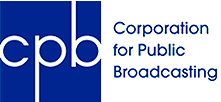Advertisement
|
Trump Proposes $1.1 Billion Cut to Public Broadcasting
| RADIO ONLINE | Tuesday, June 3, 2025 | 4:22pm CT |





|
 |
President Donald Trump has formally asked Congress to rescind $1.1 billion in previously approved funding for public broadcasting, a move that would eliminate federal support for NPR, PBS, and local public media stations through 2027. The proposal, part of a broader $9.4 billion cuts package, has sparked sharp criticism from public broadcasting leaders and bipartisan concern on Capitol Hill.
The funding in question, already appropriated by Congress in March, represents the full two-year allocation for the Corporation for Public Broadcasting (CPB). The rescission request, if approved within 45 days by a simple majority in both chambers, would withdraw the funds and likely cripple many public stations, especially those in rural areas where federal support is often a primary revenue source.
In a statement, CPB President and CEO Patricia Harrison called the proposed cuts "irreplaceable" and warned of "regrettable and lasting consequences" if enacted. "Public media serves all -- families and individuals, in rural and urban communities -- free of charge and commercial free," she said.
PBS President Paula Kerger and NPR CEO Katherine Maher also condemned the proposal. Kerger warned of lost emergency services and local programming, while Maher called the move unconstitutional, accusing the administration of attempting to punish public broadcasters for political reasons.
"This proposal, which is explicitly viewpoint-based and aimed at controlling and punishing content, violates the Public Broadcasting Act, the First Amendment, and the Due Process Clause," Maher said.
The push to eliminate funding for CPB was previewed earlier this year during a House subcommittee hearing in which Republican lawmakers accused NPR and PBS of political bias. The effort aligns with broader calls from Trump-aligned conservatives to defund public media.
House Speaker Mike Johnson supported the request, citing recommendations from a government efficiency task force led by billionaire Elon Musk. "House Republicans are eager to eliminate wasteful, duplicative, and outdated programs," Johnson said.
But in the Senate, the plan faces hurdles. Republican Senator Susan Collins of Maine voiced strong opposition to proposed cuts to the global HIV/AIDS program PEPFAR -- also targeted in the same rescission package -- and declined to endorse the broadcasting cuts. Senator Lisa Murkowski, another Republican, has previously spoken out in support of public broadcasting.
Democratic leaders have blasted the proposal. Senate Minority Leader Chuck Schumer and Senator Patty Murray accused Trump of using budget cuts to "settle political scores and muzzle the free press."
Public broadcasting groups are mobilizing in response. Nearly 200 local radio station leaders visited Capitol Hill in May to advocate for continued funding. Meanwhile, NPR, PBS, and member stations are mounting legal challenges against executive actions by Trump seeking to bar CPB funds from reaching NPR and PBS.
The Corporation for Public Broadcasting, a nonprofit established by Congress in 1967, is protected by statutes that are intended to shield it from political interference. But this latest move -- though legal under rescission procedures -- marks the most significant threat to its funding in decades.
The last successful presidential rescission occurred more than a generation ago. Whether this attempt gains enough traction in Congress remains uncertain.
Advertisement
|
Latest Radio Stories
Highdive Takes Top Honor at 2025 Radio Mercury Awards
|
Connoisseur Media Unveils Leadership Changes on June 9
|
Podtrac Podcast Rankings See Audience Gains in May
|
Advertisement
|
Jimmy Failla Joins 710 WOR in New York for Weeknights
|
Chachi Loves Everybody Podcast Features Forgy, Padron
|
SiriusXM to Deliver Live Coverage of 125th U.S. Open
|

















